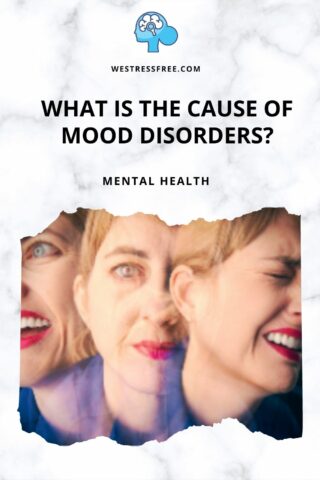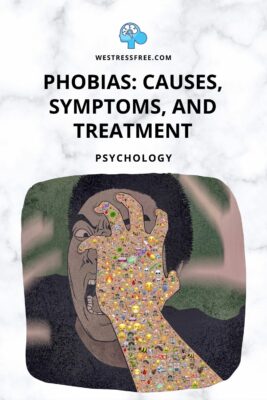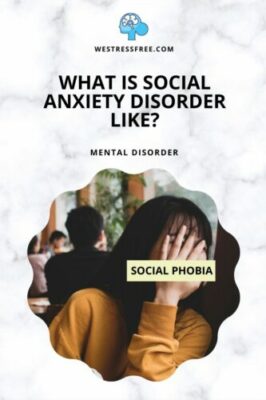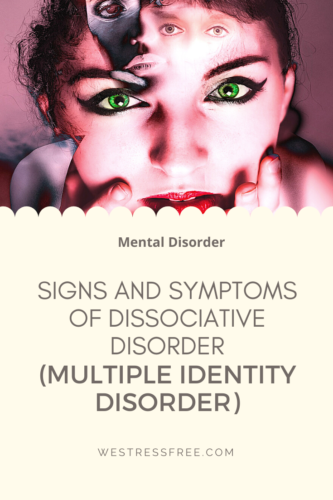Signs and Symptoms of DISSOCIATIVE DISORDER
Have you ever experience dissociation before? Some of us often experience dissociation, or circumstances where we are carried away, daydreaming while working. Dissociative identity disorder is a more severe form of dissociation, resulting in a person losing control of his thoughts, memory, feelings, actions, and awareness of his identity. These different identities usually also have different names, different temperaments, even different self-images. Can this mental disorder be treated? Let’s find out more about dissociative disorder along with the signs, symptoms and treatments from the review below.
Recognize Dissociative Identity Disorder
and How to Treat It
What is dissociative identity disorder?
Dissociative identity disorder, which is better known as multiple personality disorder, is a complex psychological condition where the sufferer has two or more different personalities, and alternately takes over the consciousness of the individual who experiences it.
Dissociative identity disorder is one type of mental disorder that shows the dissociation or discrepancy of the relationship between thoughts, memories, environment, actions, and self-identity. This is a way for someone to escape trauma experienced in an unhealthy way and cause problems in their daily lives.
Individuals who experience identity dissociation disorder may be able to feel uncertainty about their identity and feel the presence of other identities in themselves that have different names, backgrounds, voices, and behaviors. The most visible characteristic of this disorder is the change from one identity to another that has a personality that is far different from the original personality. Another identity that is not the real identity of the sufferer is usually referred to as alter. Patients who are aware of the existence of other alters will sometimes refer to themselves with the words “we” or “us”.
What causes multiple personality disorders?
There is no definitive explanation for why someone can suffer from dissociative identity disorder. Although many factors are involved in this disease, but people with dissociative identity disorder usually have a background of traumatic experiences, especially during their childhood. This traumatic experience can be in the form of repeated torture both emotionally, physically abused, and sexual harassment. Because of this experience, a person then seems to create a mechanism of self-defense by creating other personalities outside of his consciousness to be free from the intense trauma he experiences.
Symptoms of dissociative identity disorder a.k.a multiple personalities
- The main characteristic of multiple personality disorder is the appearance of two or more different personalities who take turns in taking over or controlling themselves.
- Each of these personalities has a different name, mindset, habits, speaking style, physical characteristics, and even writing style.
- Signs such as depression, excessive anxiety, often feeling guilty, until aggressive can appear. Both audio and visual hallucinations are also possible. During childhood, sufferers of dissociative identity disorder also have a tendency to have behavioral problems and difficulty focusing while at school.
- Mood changes (mood swings), panic attacks, phobias, eating disorders, sleep disorders (such as insomnia and sleepwalking), excessive headaches, and erectile dysfunction also usually accompany dissociative identity disorder.
- Problems in memory are also often encountered, especially memories related to current and past events, people involved, places, until time. Each personality in one person may have a different memory. When the passive personality is taking over, the memories that appear are usually vague or even contradict the original event. While the more dominant or protective personality has a more complete memory of an event. So it is not uncommon for sufferers not to remember why he is in a certain time and place.
- Each personality usually appears because there is a trigger. When one personality takes over, this dominant personality may ignore the other personality or even experience a conflict of its own. The transition from one personality to another is usually triggered by psychosocial stress.
Also read: What is the difference between stress and depression? – Know the symptoms
Some things that are felt as a result of this disorder:
- Not able to handle emotions properly.
- Alcohol and narcotics abuse.
- Experiencing depression, anxiety, and thinking or attempting suicide.
- Sleep disorders, such as insomnia, night terror, and sleepwalking.
- Compulsive behaviors.
- Anxiety, panic attacks (panic attacks), and phobias (flashbacks, reactions of things related to trauma).
- Changes in moods are uncertain (mood swings).
- Symptoms such as psychosis.
- Eating Disorders.
Also read: Anxiety versus Panic Attacks – Know the Difference
Also read: Helping Someone with Panic Attack
What is the difference between dissociative identity disorder and bipolar disorder?

Having more or less the same characteristics and symptoms, dissociative identity disorder is often confused with bipolar disorder. Bipolar disorder is a change in mood, energy, and unusual activity. This disorder is also called manic-depressive illness, where the sufferer will experience two phases namely manic and depressive. The manic phase occurs when sufferers feel they have a lot of energy, are excited, and are more active than usual to cause trouble sleeping, talk very fast, feel able to do various things at one time, and tend to do risky things. While the depressive phase is the opposite of the manic phase. These two phases are very different and the difference between the two tends to be intense and drastic.
The difference between bipolar disorder and dissociative identity disorder is the main cause.
In dissociative identity disorder, past trauma tends to be the main trigger of the disorder. While in bipolar disorder, brain structure, genetics, and heredity play a more important role.
Changes between one personality and another in dissociative identity disorder are more often triggered by psychosocial stress, while in bipolar disorder there is a clearer pattern. For example the manic phase occurs for one week followed by a depressive phase for 2 weeks.
Also read: Recognizing Bipolar Disorder in Children and Teens
When should you consult a doctor?
If you or the people closest to you experience the symptoms listed above, have thoughts of suicide, or attempt suicide, consult your doctor and other mental health experts immediately.
What should be prepared before consulting a doctor?
Before consulting with doctors and other mental health experts, you should prepare a list of symptoms experienced, personal information, medical information, a list of drugs or substances consumed, and questions, such as:
- What causes my symptoms?
- What treatments are suitable for the symptoms that I am experiencing?
- Can my symptoms have long-term effects?
- If I have to take drugs, what are the side effects and contra indications of the drugs given?
- How do I monitor my progress?
- Are there brochures, websites, or printed materials that I can get about my condition?
What will the doctor do when consulting?
Usually doctors and other mental health experts will ask a number of questions, such as:
- What symptoms do you feel or report by people around you?
- When did you first experience these symptoms or when did the first time someone else reported the symptoms to you?
- How often are these symptoms experienced?
- How often do you experience anxiety or depression?
- Have you thought about killing yourself?
- Is there a memory that you cannot remember from a certain period of time?
- Have you ever been in a place but can’t remember how you were there?
- Are you feeling anxious or depressed?
- Have you ever thought about hurting others or yourself?
- Have you ever served in the military?
- Have you ever consumed alcohol or certain drugs?
- Do you have certain medical or mental conditions?
- How does the disorder affect your daily life?
- Have you ever experienced as if coming out of your body?
- Do you feel that there are some people in your body?
- Have you ever been physically or mentally abused as a child?
- Have any family members ever been abused during your childhood?
Treatments for dissociative identity disorder sufferers
Treatment for dissociative identity disorder sufferers can last for years. Some types of therapy recommended for people with dissociative identity disorder are:
- Psychotherapy: in adults, psychotherapy can last for five to seven years. The main goal of therapy is to ‘unite’ several existing personalities to become one whole personality. Psychotherapy also helps sufferers deal with trauma that triggers the emergence of other personalities. Stages that are done usually learn what personalities emerge, overcome trauma, and unite several existing personalities into one.
- Family therapy: conducted to provide more explanation to families related to dissociative identity disorder. Inform the family, what changes will occur and observe the signs or symptoms of personality changes.
- Medication: although there is no specific drug that can cure dissociative identity disorder, but symptoms that appear such as excessive anxiety and depression can be treated with antidepressants.
Also read: The Pros and Cons of Taking Antidepressants
The response of each person with multiple personalities varies, but generally therapy can help manage symptoms if it is done regularly.
Therapy also plays a role in preventing psychological and behavioral problems related to multiple personality disorders.
People with multiple personalities may have difficulty maintaining relationships with people around them, can hurt themselves, hurt others, or abuse drugs. Therapy to be undertaken by sufferers will focus on making sufferers comfortable dealing with others and preventing sufferers from doing dangerous things.
There you go. Now you know what is dissociative identity disorder, the signs, causes and treatments we can give to the sufferer.
If you have questions, consult your doctor for the best solution for your problem.
Stay safe, happy and healthy!
—————————————————————————————————————————————–
This post may contain affiliate links, which means I make a small commission off purchases, at no extra cost to you. Read my full disclosure here. Thank you for supporting the work I put on this site!
—————————————————————————————————————————————–
We Stress Free does not provide medical advice, diagnosis, or treatment. However, if you need someone to talk to and want to make friends, please feel free to reach me at ferra@westressfree.com. If you would like to REDUCE your STRESS and are interested to do an ONLINE THERAPY, you can do so here.

—————————————————————————————————————————————–
Disclaimer: The information contained in this website is for educational and informational purposes only and is not intended as health or medical advice. Always consult a physician or other qualified health provider regarding any questions you may have about a medical condition or health objectives.
Thank you for reading today’s topic: Signs and Symptoms of DISSOCIATIVE DISORDER

















Hi Ferra,
As always, a fascinating and well-written article.
I must admit my knowledge of dissociative disorder is somewhat limited, but I believe I would have probably confused the symptoms with bipolar disorder.
However, as you have rightly pointed out, bipolar is more symptomatic with genetics and brain structure.
I now feel much more up-to-speed on dissociative identity/multiple personality disorder. Thank you.
I love the way you have structured the questions to be asked, and what you’ll be asked, during a consultation with your Doctor.
That is fantastic information for anyone looking to seek medical help.
Thanks
Partha
Hi Partha,
Thank you very much for your kind comment. I really appreciate it!
I am glad that you enjoyed reading this article and gained a new knowledge about dissociative identity/multiple personality disorder and the difference from bipolar disorder.
Hope others will find it useful and enjoyable to read too.
Stay safe, happy and healthy!
Cheers,
Ferra
I was glad to discover you explained the difference between multiple personality disorder and bipolar. As well as their root causes.
If a person suffers from multiple personality disorder is it possible they can exhibit different personalities to different people?
How do mood swings factor into this area.If a person turns from a happy mood to an angry mood on a dime, how would we categorize what this is?
This is a fascinating area of study.
Cheers.
Edwin
Edwin,
Glad you found this article useful. Thank you for your kind comment.
Great question. When someone has a mood swing episode, let them know that we are there for them and ask them what we can do to make them feel better. Sometimes they just want to be heard, understood and not to be judged on.
Stay safe, happy and healthy!
Ferra
Further discussion on this preview, other sign’s and symptoms of dissociàtbe disorders are, ignificant memory loss of specific times, people and events Out-of-body experiences, such as feeling as though you are watching a movie of yourself
Mental health problems such as depression, anxiety and thoughts of suicide
A sense of detachment from your emotions, or emotional numbness
A lack of a sense of self-identity…
Hope these also helps…
Evans,
Thank you for your kind comment and additional discussion. You’ve got great points there. I really appreciate it! Hope other readers find them helpful as well.
Stay safe, happy and healthy!
Ferra
Interesting article. You gave lots of information and I appreciate that. The difference between bipolar and the multiple personality disorder was interesting since I have never thought about the differences.
I appreciate you sharing this information and I think your website will be very helpful. I am going to visit it a lot.
Thanks.
Hi John,
Thank you for your kind comment. I really appreciate that.
Glad you found this article useful. I do hope you’ll visit my site again in the future.
Cheers,
Ferra
Nice review you have there on ” signs and symptoms of dissociative disorder”
The most worriesome issue about dissociative disorder is the person suffering from it might not aware of these change in Personalities. This is not good because only one who try to let the person know about what he is displaying might end up in trouble because we don’t really know if one of the multiple personality is evil. I get scared when I think about it
Lizzy,
Yes, the personality changes is pretty scary if we don’t know the person really well. However, we need to remain calm when we notice the switches. We also need to educate ourselves what triggers the switches in order to minimize the switching episodes to happen.
Thank you for your comment.
Stay safe, happy and healthy!
Ferra
Helo, this is really a great and educating article on signs and symptoms bod dissociative disorder. Before now I never had such concised knowledge of dissociative disorder and how they can be managed, one major cause if this disorder are anxiety and depression. Thanks for this insightful article I have really been impacted with knowledge.
Hi Sheddy,
Glad you found this article useful. Thank you for your kind comment.
Stay safe, happy and healthy!
Ferra
Wow, there is a lot of great information in this post.
I didn’t know the differences between these two illnesses until reading this. Thanks for comparing and contrasting these two so I could make sense of them.
Hello Greg,
Thank you for leaving a comment on this post.
Glad you found the post useful. Hope others will find it useful too.
Ferra